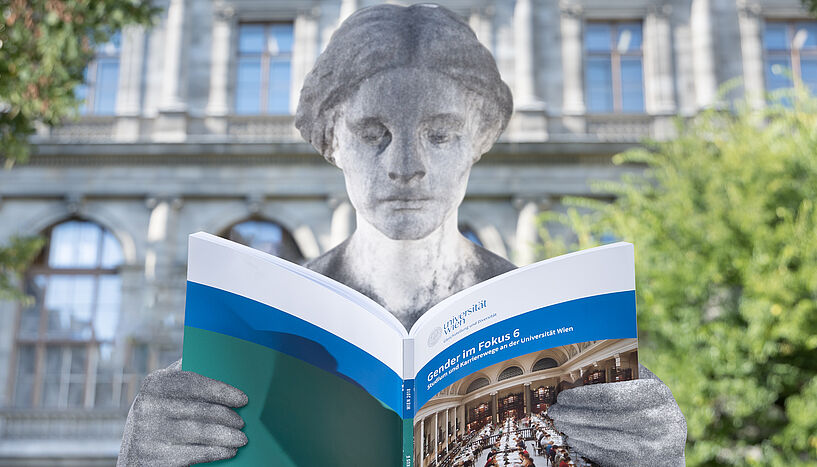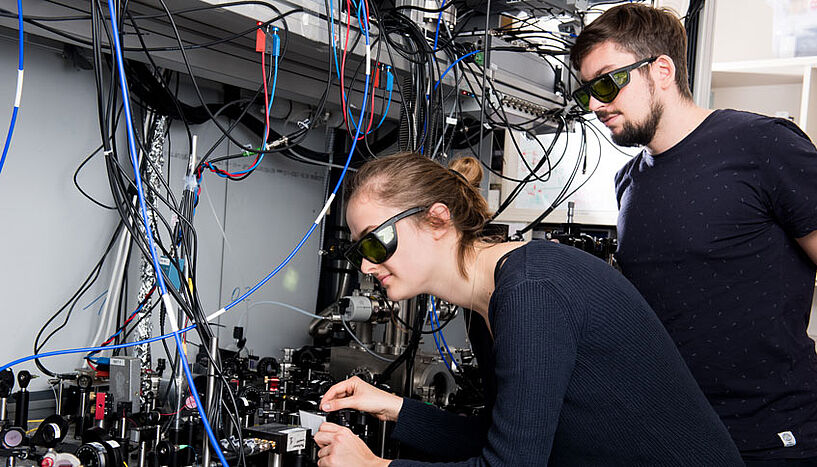REWIRE – Reinforcing Women in Research
| 26. Februar 2021
The REWIRE programme not only aims to enable the selected academics to complete their projects at the University of Vienna within three years, but also to provide them with excellent career opportunities. (© derknopfdruecker.com)
Promoting women in research – this is the aim of the recently launched REWIRE programme for female postdoctoral researchers at the University of Vienna 16 promising researchers will conduct research in Vienna in the coming three years. The programme will support them in advancing their academic careers.
What do a mathematician conducting research on non-linear elasticity, a biologist who dug along the banks of the Amazon and a historian searching for Czechoslovakian weapons in Africa have in common? They are ambitious researchers and are three of 16 selected candidates in the REWIRE (Reinforcing Women in Research) programme.
Why the focus on women?
This EU-funded Marie Skłodowska-Curie COFOUND project was initiated and is coordinated by the Research Services and Career Development service unit. The programme aims to address the findings published in the She Figures report of the European Commission, which demonstrates that women are still under-represented in research, in particular at the higher career and professorship levels.
She Figures 2018
The European Commission has been publishing a report on the situation of gender equality in research and innovation at the European level every three years since 2003. In 2018, this report again demonstrates that the inequality is still substantial, in particular at the advanced levels of the academic career: Between 45 % and 55 % of doctoral candidates in all EU countries are female.
The share of women among postdoctoral researchers and researchers amounts to only a third and among professors to less than a quarter. Only one third of academic publications are published by women; three quarters of patents are obtained by men. 22 % of research institutions are headed by women; the share of women in research committees is 27 % and only a fifth of such committees are led by women.
In a multi-stage peer review procedure, 16 candidates conducting research on relevant issues were selected for the REWIRE programme. The selected researchers are expected to embark on a successful academic career and have excellent chances of acquiring prestigious funding, such as ERC starting grants or the START Prize of the Austrian Science Fund.
What is special about the programme?
The REWIRE programme not only aims to enable the selected academics to complete their projects at the University of Vienna within three years, but also to provide them with excellent career opportunities after completing their projects. In the long run, the programme should therefore increase the share of women in top-level academic positions. Successful candidates therefore not only receive support for their submitted projects but also have the opportunity to participate in non-research-oriented training programmes. They become part of an extended research network and gain international visibility through publications in renowned academic journals and through participation in conferences.
Which researchers and projects have been selected?
Due to the size of the University of Vienna, the topics covered by the selected projects are diverse: Biologist Lucia Fuchslueger investigates the interactions between plants and microorganisms in tropical soil as well as their mutual influence on climate change. Scholar of translation studies Eva Spisiakova is looking for ways to address disability in literature without creating ableist narratives. Biologist Marketa Schmidt conducts research on structural changes in tumour cells. Musicologist Leah Batstone investigates the influence of social and political upheavals on music in 20th century Ukraine. Historian Rosamund Johnston traces the path of Czechoslovakian weapons that played a role in wars all over the world in the second half of the 20th century. Mathematician Anastasia Molchanova investigates non-linear elasticity. And geographer Jaanika Vider reconstructs the ethnographic representation of the Arctic and Northern Russia.
uni:view will present all scholarship holders and their research projects over the course of the coming months.



